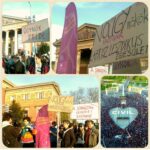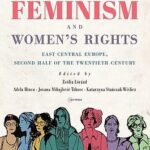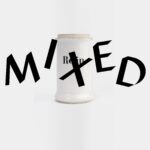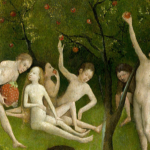 STICHWORT. Archiv der Frauen- und Lesbenbewegung (Web)
STICHWORT. Archiv der Frauen- und Lesbenbewegung (Web)
Time: 09.12.2024, 19.00 CET
Venue: STICHWORT, Gußhausstr. 20/1A+B, 1040 Wien
Since the mid-1990s, the Labrisz initiative in Budapest has created a space for meetings and discussions about the personal experiences and social position of lesbian and bisexual women. Labrisz Lesbian Association (Labrisz Leszbikus Egyesület) was born out of these initial informal Labrisz evenings, in 1999. With an oral history project on lesbian history in Hungary, their Labrisz book series, the annual LIFT Festivals, a regular lesbian film club and the educational programme „Without Taboos“, they have dedicated themselves to strengthening the presence of LBT community and lesbian culture for 25 years.
At this evening, Labrisz activists Anna Borgos and Dorottya Rédai will present their organisation and share how Labrisz uses its various activities to create lesbian visibility and stimulate social discourse under the current conditions of the authoritarian, homophobic regime.
The event will be held in English | Contribution: € 3,50 | For women*
Anna Borgos is a psychologist and women’s historian. She is a founding member of Labrisz Lesbian Association where she is engaged in developing a Hungarian lesbian herstory archive and in other cultural projects.
Dorottya Rédai is a gender and education scholar and the Executive Director of Labrisz Lesbian Association. She is involved in the education program of Labrisz and she is the coordinator of „A Fairytale for Everyone“ book project. Continue reading

 Zsófia Lóránd, Dep. of Contemporary History and RECET – Research Center for the History of Transformations, Univ. Wien
Zsófia Lóránd, Dep. of Contemporary History and RECET – Research Center for the History of Transformations, Univ. Wien  Wien Museum
Wien Museum  insightOut. Journal on Gender and Sexuality in STEM Collections and Cultures
insightOut. Journal on Gender and Sexuality in STEM Collections and Cultures  Arbeitskreis für interdisziplinäre Männer- und Geschlechterforschung AIM GENDER
Arbeitskreis für interdisziplinäre Männer- und Geschlechterforschung AIM GENDER